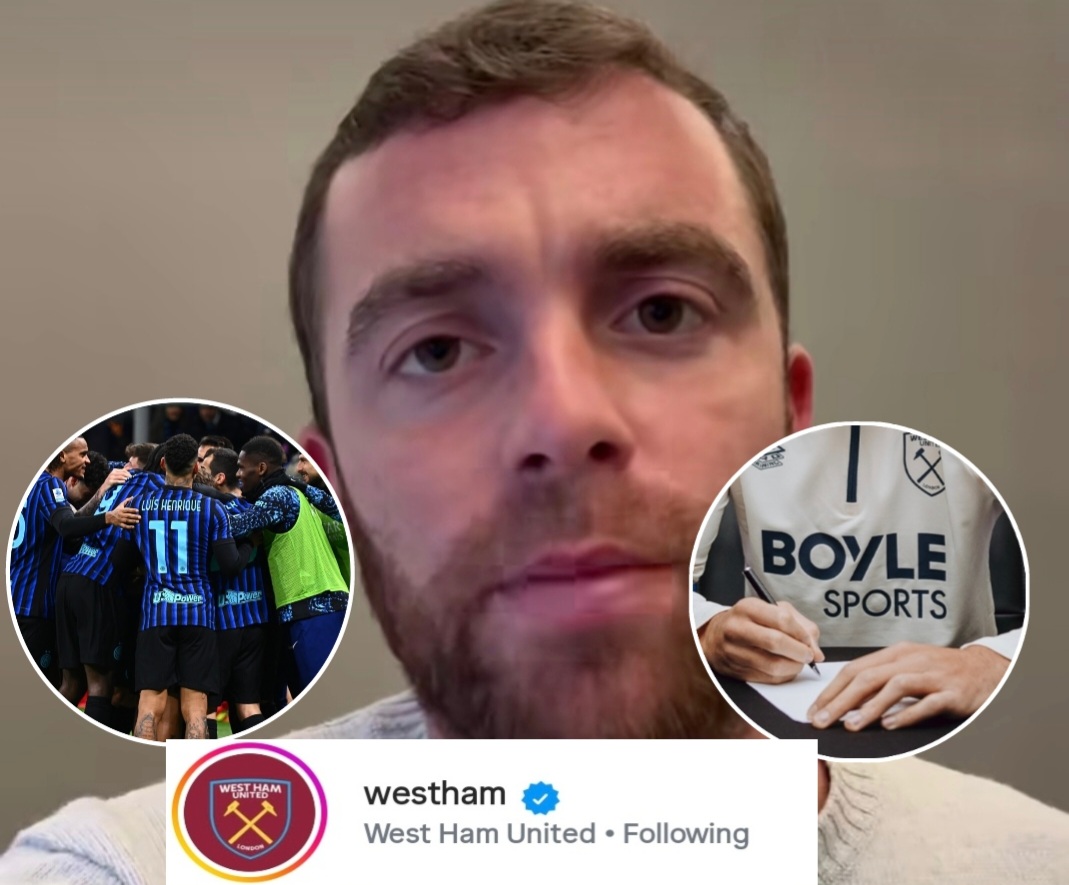WEST HAM FANS LEFT IN DISBELIEF AFTER SEEING WHAT MUHAMMAD KUDUS POSTED ON THE INTERNET AFTER 0:3 WIN AGAINST HIS FORMER CLUB
When passions run high in football, a single social-media post can turn a match story into a saga — especially when it involves a player and the club he left. That’s exactly what happened after West Ham’s 0–3 home defeat, a match that doubled as Mohammed Kudus’s first meaningful return to face his old teammates since his summer move. In the hours that followed the final whistle, supporters on both sides were still processing the scoreline; then Kudus’s post appeared online and the reaction was immediate: anger, bewilderment and a lot of online debate. Below we unpack what happened on the pitch, what the transfer context was, what Kudus posted according to reports, and why West Ham fans felt so blindsided.
The game: a convincing 3–0 for the visitors
The match itself left little to argument. Tottenham produced a controlled, clinical performance at the London Stadium, taking advantage of a numerical edge and asserting dominance from the second half onwards. The visitors opened the scoring shortly after the break and never looked back; a red card further tilted the contest and Spurs finished the job with two more goals to make it 3–0. Match reports described Tottenham’s performance as authoritative and said West Ham’s afternoon spiralled after the sending-off and defensive lapses.
For West Ham fans already anxious about a run of poor results, the manner of the defeat — and the club’s position in league form — was the first cause for frustration. Conceding three at home, seeing key players underperform and watching supporters leave early all contributed to a bruised fanbase heading into the aftermath.
The transfer backstory: why Kudus’s post mattered
To understand why a single post created such a stir, you have to remember that Mohammed Kudus had only recently made a high-profile transfer. The summer saw Kudus move away from West Ham in a deal that attracted significant attention across the English game; publications reporting the transfer noted the sizeable fee and the narrative weight of a player moving between rivals. That recent history meant any interaction between the midfielder and his former club — on or off the pitch — was going to be read for meaning.
Transfers are rarely only sporting transactions; they carry emotional freight. Fans invest identity in clubs, and a player’s departure — especially to a nearby rival — can feel personal. When that player then plays a role in a heavy defeat, supporters are more likely to scrutinize everything that follows: body language, goal celebrations, and, increasingly, social-media activity. That context primed West Ham supporters to react strongly to whatever Kudus did next.
The post: what he reportedly shared (and how it landed)
Multiple outlets and social posts picked up the same thread: sometime after the final whistle, Kudus made a public post that many West Ham fans regarded as tone-deaf given the result and his recent exit from the club. Different reports framed it in slightly different ways — some described it as a “confession” or an off-hand celebration, others as remarks praising his new side while appearing dismissive of his former employers. The reportage varies, but the consensus in fan reaction pieces was that the timing and tone were provocative.
Crucially, nowhere in the mainstream coverage was the post framed as abusive or containing direct personal attacks; rather, the problem for many West Ham fans was the perceived lack of respect — a social-media gesture that many saw as rubbing salt in the wounds of a club and crowd already nursing a bad result. That perceived lack of empathy to the place that had recently employed him is what drove the disbelief and ire.
Why supporters reacted so intensely
There are a few overlapping reasons the post created such a reaction:
- Recency effect: Kudus’s move was fresh, and emotions around player sales are stronger in the immediate aftermath of a transfer. Fans felt the transfer personally, and that amplifies the sting of any subsequent perceived slight.
- The defeat itself: Losing 3–0 at home is a hard pill to swallow; fans look for explanations and sometimes project blame outward. A viral social post from the player involved makes for a clear target.
- Social media’s scale: Platforms accelerate and amplify reactions. What might once have been a momentary mutter in a pub is now flaming across timelines within minutes — and fan communities quickly interpret intent, often in the worst light.
- Tribal loyalty: Rivalry in local derbies or “London” contexts is acute. A player seen to be celebrating — or even simply not showing contrition — after inflicting damage on his former club will often be judged harshly.
Taken together, these dynamics produced the “disbelief” that local supporters expressed online. Social posts from fans ranged from the bewildered (“did he really just post that?”) to the outraged (“how dare he?”), with threads of memes and reaction videos following quickly.
The player’s perspective (and what pundits are saying)
From a player’s point of view, tone and intent often differ from perception. Players operate under immense pressure to adapt quickly to new environments and to show commitment to their new clubs; social media can be part of that process — messaging towards new fans, teammates and club channels. Several pundits and commentators cautioned against reading too much malice into a single post, noting that what looks celebratory can simply be a player expressing professional pride. Others argued that players must be media-trained to appreciate how old fans will read any public message, especially so soon after a move.
Journalists who have spoken to people close to the situation suggested Kudus had been frank in private about his mixed feelings in the run-up to facing his former side, which makes the public posture more complicated: a player can both respect his old club and be delighted with his new one — but communicating both messages effectively in public is a delicate balancing act.
What this means for the short term
In the immediate aftermath, expect three things to happen in parallel:
- Fan discourse will continue to boil on social platforms: clips, screenshots and hot takes will dominate timelines as supporters vent.
- Club communications may step in: if the situation escalates, either club’s PR team might issue clarifying statements or request restraint from fans and players — especially if abuse appears. At present there is no sign of official sanctions, but clubs monitor these episodes closely.
- The football itself will eventually take over: form and performance determine long-term narratives more than social posts. If Kudus performs well for his new club and West Ham’s results don’t improve, the ire could harden; conversely, strong results at the London Stadium could bleed off some heat.
Broader reflections: modern football’s social-media tightrope
This episode highlights a broader tension in modern football: players are expected to be both global personalities and local ambassadors. They sign for clubs, win new fans and are also expected to respect the past. The speed and permanence of social media make that balancing act increasingly treacherous. One careless post — or one post read the wrong way at the wrong time — can eclipse match analysis for days.
There’s also a lesson here for supporters and media consumers: context matters. Posts are edited, truncated and shared without nuance. Fans, too, have agency: how they react shapes the narrative — retaliatory abuse or excessive shaming only worsens the situation. Constructive criticism aimed at club decision-makers or performances is different to directed abuse at an individual. The lines blur in the heat of the moment, but the principles remain important.
Final word
Mohammed Kudus’s post after the 3–0 defeat landed like a splash of petrol on smouldering coals. The combination of a recent transfer, a heavy home loss, and the instant amplification of social media created the perfect conditions for fan disbelief and anger. Whether the reaction turns into a longer-term storyline depends on the weeks ahead — on the pitch, where performance will ultimately set the agenda, and off the pitch, where clarity of message and restraint from all sides can help cool tempers.
For now, the episode serves as a reminder: in modern football, social-media posts are never just social. They’re part of the matchday narrative — capable of deepening rivalries, shaping fan memory, and sometimes, overshadowing the 90 minutes themselves.








Post Comment